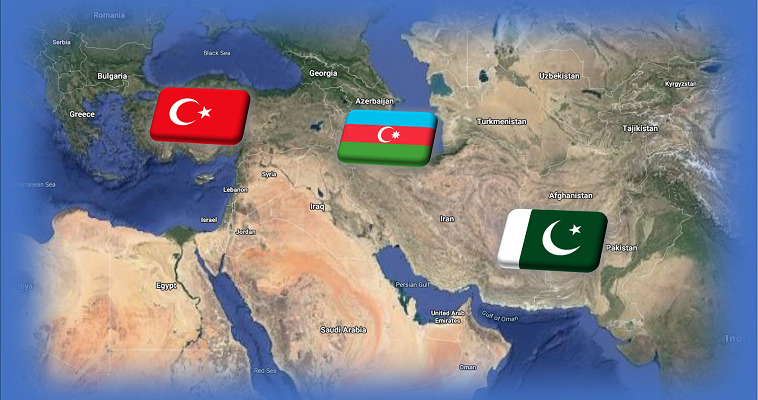The emergence of Azerbaijan as a successful symbol and a possible template for Turkey-Pakistan military cooperation is a warning signal India can no longer ignore, especially in the backdrop of Azerbaijan’s fresh attempt for a military offensive on Armenia earlier this month. The trio also launched a joint exercise last year called ‘Three Brothers’, which came soon after Azerbaijan’s successful 44-day 2020 military campaign against Armenia.
Azerbaijan benefited in its 2020 campaign from Turkish-made and supplied drones that paralysed Armenian artillery. It’s also in talks with Pakistan to procure Chinese-origin JF-17 fighters after it upgraded military ties through an ambitious framework agreement. On the other hand, Turkey and Azerbaijan have been resolute supporters of Pakistan’s position on the Kashmir issue of late. Both countries also make it a point to attend the August 5 protest event Pakistan organizes at the United Nations against India’s decision to withdraw Article 370 from Jammu & Kashmir.
Pakistan, in turn, has always supported Azerbaijan’s line on the Nagorno Karabakh territorial dispute with Armenia, while India has been even handed. Further, Azerbaijan has been difficult as current chair of the Non-Aligned Movement. It even wanted to move a NAM statement of support lauding Pakistan’s role and effort in aiding the return of Taliban to power in Afghanistan last year. Some amount of counter diplomatic effort was needed to stall this. Interestingly, India has a more robust economic relationship with Azerbaijan compared to Armenia, including ONGC investments in gas fields there but that currently seems to be paling in significance. In fact, with Russia preoccupied in Ukraine, it appears Azerbaijan has decided to press ahead militarily to further its gains.
The key difference this time is that it has escalated matters on the undisputed parts of its border with Armenia. US Speaker Nancy Pelosi, whose Taiwan visit against Chinese protests created a major stir, also landed up in Armenia and went on to identify Azerbaijan as the aggressor and provocateur. India was cautious not to name any country but asked the “aggressor side” to stop hostilities.
Now, Turkish-made Bayraktar TB2 drones have been deployed by Ukraine. Being a NATO member, Turkey has developed diplomatic leverage in the campaign strengthened by the fact that Azerbaijan has emerged as one of the key alternatives to Russian gas for Europe. Clearly, this leverage has provided Azerbaijan a window to prise open the ceasefire and seek to militarily settle its political conflict with Armenia.
For India, the conflict by itself may not be of any immediate consequence but the positive impact it would have in cementing the Turkey-Pakistan alliance, particularly on the military side, would be of concern. It could lay the basis for acting jointly in other theatres including Pakistan Occupied Kashmir given the existing political understanding on the subject. The Turkish-Azerbaijan-Pakistan axis is also being hinged on an Islamic civilizational narrative that finds collective expression at the OIC against India Moreover, Pakistan will end up drawing China into the equation that surely won’t augur well for India. In other words, it probably is in India’s interest that Armenia puts up a stand and not be trampled upon because of a power vacuum caused by Russia’s preoccupation in Ukraine.

